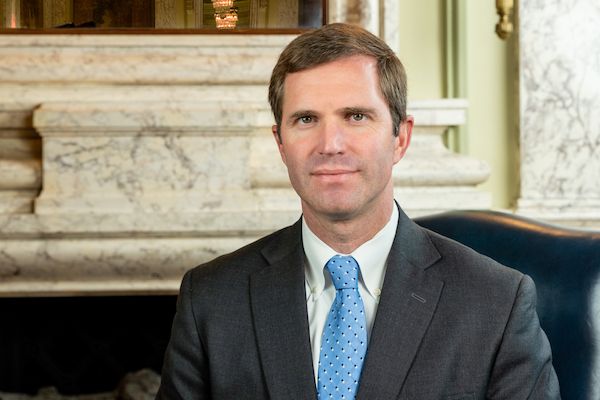The Governor Question
I have an op-ed in the Lexington Herald-Leader about the foreign policy bonafides of America’s governors. As you might imagine it focuses on Andy Beshear, but the general argument works for any governor:
Vice President Kamala Harris is looking for a running mate, and every report on that search indicates that Andy Beshear is on the short list. Democratic consultants are undoubtedly crunching numbers and hitting up focus groups comparing the potential VP candidates, and we’ll certainly know the outcome of the search by the opening of the Democratic convention. But let’s take things a step farther; beyond his contributions as Candidate Beshear, what might Vice President Beshear have to offer?
Foreign policy is often a responsibility allocated to the vice president, and on paper it’s one of Beshear’s weakest points. Over the history of American Presidential campaigning it has become conventional wisdom that state governors, especially small state governors, struggle to contribute much to foreign policy on either side of the ticket. The difficulties faced by Presidents Carter, Clinton, and George W. Bush illustrate the issues that can arise from inexperience on the international front, although all of them grew while in office. By this account, Harris would be best advised to pick a Senator like Mark Kelly, or a retired military professional like William McRaven.
But the world is changing. Globalization, immigration, alliance politics, and international law have intruded upon American domestic politics. The fact is that governors often have to make foreign policy decisions, even governors of double land-locked states. State governors may lack the foreign policy gravitas of someone like George H.W. Bush, Al Gore, Dick Cheney, or Joe Biden, but modern governors are obliged to pay attention to and participate in international affairs. No one illustrates that shift better than Andy Beshear himself.
At the beginning of his first term Governor Beshear faced the implications of international sanctions against some of Kentucky’s most lucrative exports during the latter stages of the Trump administration. When European and Asian countries sought a way to inflict pain on states that supported President Trump, they found Mitch McConnell’s Kentucky a useful target. Running interference on this effort during the Trump administration and working with the Biden administration to untangle the sanctions was one of Beshear’s earliest responsibilities.
Issues of war and peace are not normally associated with the Kentucky governor’s mansion, but from February 2022 on Beshear found himself entangled in the politics of the Russia-Ukraine War. After issuing a relatively anodyne statement condemning Russia’s invasion, Beshear was sanctioned by the Kremlin and banned from traveling to Russia, perhaps because of the contrast with isolationist politicians like Representative Thomas Massie, Senator Rand Paul, and perpetual fringed candidate Geoff Young. In more concrete terms, Beshear has been a strong supporter of Kentucky’s aerospace industry, which contributes to the US defense industrial base and has been part of the overall project of supporting Ukraine’s war effort.
The wake of the Oct. 7 attacks also made for diplomatic complications in Kentucky. The Commonwealth has small but influential Jewish and Muslim communities, and enjoys a massive economic relationship with the Gulf monarchies in the equestrian industry. Beshear has been quiet on the Israel-Hamas War but made a point of attending memorial events for victims of the attacks in both Lexington and Louisville. This hardly makes him an expert on Israeli-Palestinian politics, but he’s not a novice regarding the complex and often poisonous politics that characterize the conflict. Fortunately, Kentucky universities managed to avoid the unrest that wracked campuses across the country.
Most importantly, Beshear entered office just as the COVID-19 pandemic upended the Commonwealth and the world. Taking his cues from national Democrats, he resisted casting blame against China or delving into conspiracy theories regarding the origins of the plague. The pandemic was Beshear’s moment, giving him the opportunity to connect with Kentuckians in a way that few governors have enjoyed. The pandemic touched every aspect of domestic and international life, creating profound complications in trade, agriculture, and immigration. Any governor who managed to work through that undoubtedly has a leg up regarding foreign policy expertise.
There’s nothing here that differentiates Andy Beshear from Governors Tim Walz, Roy Cooper, or Josh Shapiro; the details change but Minnesota, North Carolina, and Pennsylvania all have their own specific international profiles. But as Democrats deliberate over the vice presidential choice, they should reject the old conventional wisdom that puts governors behind senators on the question of foreign policy. The world has changed, and the last eight years have provided a crash course on foreign policy for America’s governors.
There’s a lot more, especially on immigration, foreign travel, and the pursuit of foreign investment. Every state is going to be different, but what happens outside these borders matters for what happens inside these borders, meaning that state and local elected officials have to develop a degree of international expertise just to do their jobs.



